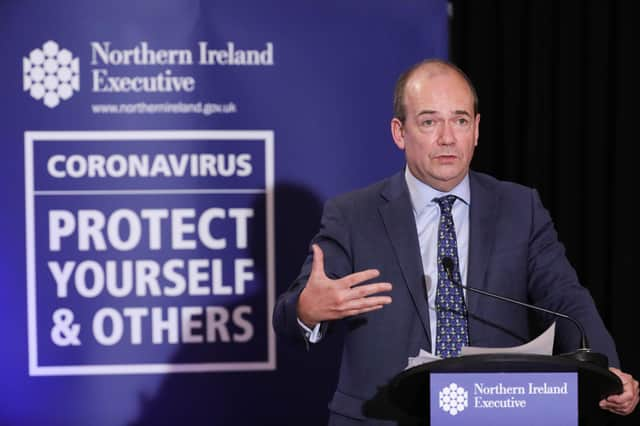Coronavirus alert level downgraded across the UK as cases continue to fall


Localised outbreaks of Covid-19 are still “likely” to occur, the advisers warned, and the virus remains in general circulation.
But the downgrading – recommended by the Joint Biosecurity Centre (JBC) – means transmission of coronavirus is no longer considered to be “high or rising exponentially”.
Advertisement
Hide AdAdvertisement
Hide AdHealth Secretary Matt Hancock said moving to a lower alert level is a “big moment” for the UK, and showed the country is getting “back on her feet”.
England’s Professor Chris Whitty, Northern Ireland’s Dr Michael McBride, Scotland’s Dr Gregor Smith and Wales’ Dr Chris Jones agreed with the JBC’s recommendation.
They said: “The Joint Biosecurity Centre has recommended that the Covid-19 alert level should move from level four (a Covid-19 epidemic is in general circulation; transmission is high or rising exponentially) to level three (a Covid-19 epidemic is in general circulation).
“The CMOs for England, Scotland, Wales and Northern Ireland have reviewed the evidence and agree with this recommendation to move to level three across the UK.
Advertisement
Hide AdAdvertisement
Hide Ad“There has been a steady decrease in cases we have seen in all four nations, and this continues.
“It does not mean that the pandemic is over. The virus is still in general circulation, and localised outbreaks are likely to occur.
“We have made progress against the virus thanks to the efforts of the public and we need the public to continue to follow the guidelines carefully to ensure this progress continues.”
Mr Hancock said: “The UK moving to a lower alert level is a big moment for the country, and a real testament to the British people’s determination to beat this virus.
Advertisement
Hide AdAdvertisement
Hide Ad“The Government’s plan is working. Infection rates are rapidly falling, we have protected the NHS and, thanks to the hard work of millions in our health and social care services, we are getting the country back on her feet.”
Professor Matt Keeling, from the University of Warwick, said the move was “expected and is justified by the current epidemiological situation”, but warned that it is “not a time for complacency”.
“Our model-based assessment of the outbreak shows that cases are now at levels comparable with early March (before the lockdown began) and are continuing to fall, albeit slowly,” he said.
“The move to level three is a direct consequence of the public’s response to the social-distancing advice, but does not imply that these efforts should be relaxed. We cannot afford to lose the gains that have been made in controlling this outbreak.”